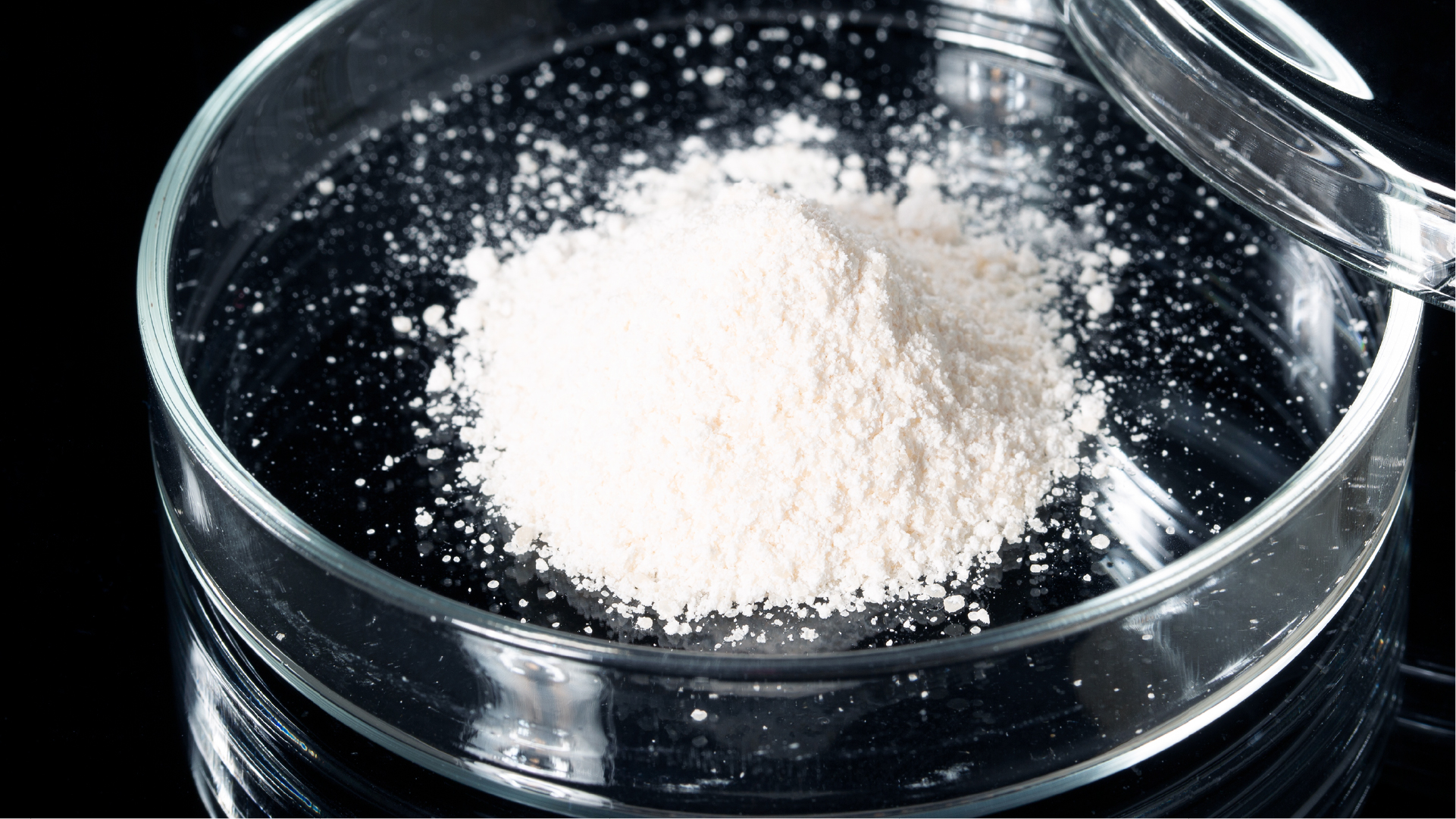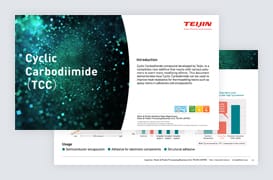Conflicting Customers’ Requirements Make a Hurdle in Developing a Resin for Car Body Weight Reduction.
Cyclic carbodiimide makes impact and heat resistant resins possible.
Resin manufacture Research and development
The Solution
Summary of the Solution
- Cyclic carbodiimide can be used in the same way as traditional carbodiimide compounds but offers improved compatibilization and heat resistance, as well as increasing viscosity and delivering other benefits.
- Cyclic Carbodiimide does not give off isocyanate gas, reducing the risk of adverse health effects.

Development team creates functional resin that maintains impact and heat resistance.

Looking for a solution, the employee consulted with a supplier with whom he normally does business and was introduced to Teijin's additive cyclic carbodiimide. The employee immediately contacted Teijin for more details and was informed of the following:
Cyclic Carbodiimide is a compound with a cyclic structure containing a carbodiimide bond. As with conventional carbodiimide compounds, it can be applied to a wide range of general-purpose resins, such as polyesters, polyamides, polyurethanes, polylactic acid, and liquid crystal polymers, without reducing the performance of each resin. Hydrolysis inhibition is higher than that of conventional carbodiimide compounds, and it is possible to impart higher hydrolysis resistance performance than conventionally by adding a small amount. Cyclic carbodiimide also enhances compatibilization, and can boost heat resistance and viscosity, depending on the resin and application. Cyclic carbodiimide can be used without sacrificing the resin’s physical properties.
Cyclic carbodiimide also reduces the risk of adverse health effects at manufacturing sites. Conventional carbodiimide generate harmful isocyanate gas when they are added to resins and melt-kneaded, or when the resins are remelted and processed, so their use necessitates ventilation and other work environment considerations. With cyclic carbodiimide, however, because the carbodiimide is inserted into a cyclic molecule, any isocyanate given off during reactions with resin is fixed in the resin. In other words, it is possible to prevent isocyanate from being emitted, thereby enabling safe use without the need to impose restrictions on the work environment.
The research and development division immediately procured samples, which they began using as additives in combination with the various candidate materials. Testing confirmed that cyclic carbodiimide improved resin compatibility, and compatibilization was achieved without issue. The effect on the physical properties was also very small. While having excellent moldability and high flame resistance, impact resistance and heat resistance are also maintained. It has sufficient performance as a functional resin material that can contribute to further weight reduction in the future. Upon seeing the results, the plastics supplier decided to release a new product line in the near future.



